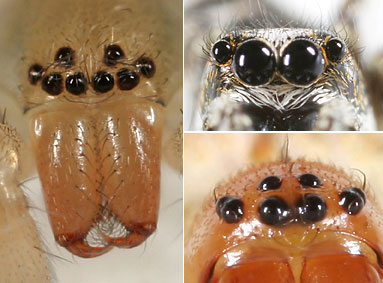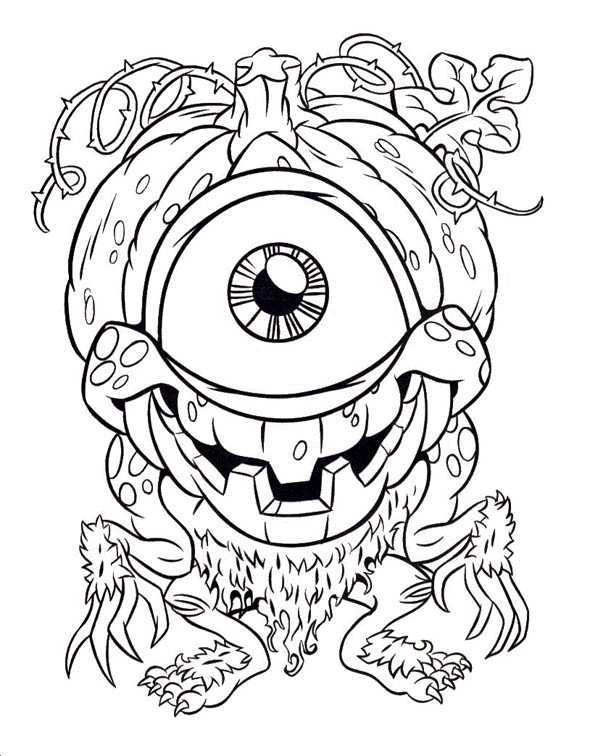Navigation
Install the app
How to install the app on iOS
Follow along with the video below to see how to install our site as a web app on your home screen.
Note: This feature may not be available in some browsers.
More options
Style variation
You are using an out of date browser. It may not display this or other websites correctly.
You should upgrade or use an alternative browser.
You should upgrade or use an alternative browser.
Evolutionalary theory.
- Thread starter Baruch Menachem
- Start date
Missourian
Diamond Member
Convergent Evolution
Convergent evolutionEnvironmental circumstances that require similar developmental or structural alterations for the purposes of adaptation can lead to convergent evolution even though the species differ in descent.
In evolutionary biology, convergent evolution is the process whereby organisms not closely related (not monophyletic), independently evolve similar traits as a result of having to adapt to similar environments or ecological nichesBut hey, I guess you know more than professional scientists who have extensively studied it.An example of convergent evolution is the similar nature of the flight/wings of insects, birds, pterosaurs, and bats.
Attempting to pound a round peg through a square hole.
We are not talking about a single trait...these are a plethora of similar traits that manifest in ALL the most complex organisms WITHOUT a common ancestor.
This is more geocentric modeling...rationalizing the results to fit the theory instead of abandoning the theory when it no longer describes the results.

eagleseven
Quod Erat Demonstrandum
How do you define traits?We are not talking about a single trait...these are a plethora of similar traits that manifest in ALL the most complex organisms WITHOUT a common ancestor.
How do you define complex organisms?
How do you prove there is no ancestry?
Dr Gregg
Rookie
- Jan 28, 2010
- 2,901
- 201
- 0
- Banned
- #105
Impossible BECAUSE of the trillions and trillions of events Gregg.
With trillions and trillions of events the probability of each animal species reaching the same basic structure DIMINISHES...it is the fact that there are trillions of RANDOM variables that reduces the probability of congruent or even similar results to zero.
No it does not, just means they were both in environmental conditions where that trait was beneficial to their survival
What trait Gregg? The probability of the same set of traits manifesting randomly...exactly the same way...after trillions and trillions of events..over and over again is zero.
You are conditioned to regurgitate this response but if you reason it out logically random mutation without a common ancestor over billions of years would never produce such congruent results.
Separate evolution cannot produce congruent results.
YOu have no idea what you are talking about

All you focus on, disingenuously, or ignorantly, is mutation, and forget about natural selection. The likelihood of getting a particular mutation in separate species can happen, but if there is no natural selection to help increase the frequency of that mutation in the population, it doesn't become prevalent. Amazing people think they can debunk 120+ years of evidence by scientific experts, by just claiming on a message board that its statistically impossible. YOu think some of the most brilliant minds in the world didn't think about that, and you have come up with some innovative thought that debunks science?
YOu are so vastly uninformed on this topic, solely focusing on mutation, but forgetting all other aspects that lead to evolution, which I'll state some below:
1. Evolution occurs in populations, not individuals. Frequency of mutation, or disappearance of that mutation from the poplulation's genome, depends on whether that mutation is more beneficial or detrimental to survival and passing that mutation on to future generations. THe more
2. As mentioned above, natural selection is the huge driver.
3, Geographical isolation, so they evolve differently without mating with each other, based on their environmental conditions
4. The environmental conditions that put natural selecting forces on the population of a particular species
JBeukema
Rookie
- Banned
- #106
How do you define traits?We are not talking about a single trait...these are a plethora of similar traits that manifest in ALL the most complex organisms WITHOUT a common ancestor.
Any similarity or difference perceived or imagined by an internet poster
How do you define complex organisms?
Being too complicated or having too complex an evolutionary history to neatly fit into said posters ignorant and overly simple idea of evolution
How do you prove there is no ancestry?
Because you can't go back in time and God doesn't make mistakes

Dr Gregg
Rookie
- Jan 28, 2010
- 2,901
- 201
- 0
- Banned
- #107
yes... biologists, geneticists, and everybody else have no idea what they're talking about and only this lone poster on an internet message board knows the truth...
You should take your hypothesis to the local university and ask for time to give a presentation
Yeah, its obvious people missourian don't really care about the science if they make and continue to argue such absurd claims.
But maybe our explanations will help others reading this thread learn what the actual theory is.
Missourian
Diamond Member
Were you bad at math?Impossible BECAUSE of the trillions and trillions of events Gregg.
With trillions and trillions of events the probability of each animal species reaching the same basic structure DIMINISHES...it is the fact that there are trillions of RANDOM variables that reduces the probability of congruent or even similar results to zero.
I give 500 people 6-sided die, and 500 people 5-sided die.
Then, I instruct them to roll the dice, and kill anyone who rolls a six.
The MORE they roll, the MORE I kill, the GREATER the odds of finding a person with a 5-sided die.
---
That's natural selection.
Better example.
Lets say there are 1,000,000 species, all the most complex animal that live or have lived, that share the "classic traits".
We have determine they do not have a common ancestor.
Roll a six sided die (evolution) 1,000,000.
Every roll it comes up 2...never 4, never 3, never 1, only 2.
Not one one eyed creature.
None with one ear or two mouths.
Something is definitely unrandom with your results..
Missourian
Diamond Member
And one-eyed species exist
also creatures with more
your strawman is the argument of the retarded
Link?
eagleseven
Quod Erat Demonstrandum
How? Because their eyes are not identical?Better example.
Lets say there are 1,000,000 species, all the most complex animal that live or have lived, that share the "classic traits".
We have determine they do not have a common ancestor.

If we kill off every 1, 3, 4, 5, and 6 through Natural Selection, only 2s will remain.Roll a six sided die (evolution) 1,000,000.
Every roll it comes up 2...never 4, never 3, never 1, only 2.
Not one one eyed creature.
None with one ear or two mouths.
Something is definitely unrandom with your results..
Natural Selection was clearly explained in the The Origin of Species. I suggest you read it.
Last edited:
Missourian
Diamond Member
Natural selection isn't random, you twit
And your 'natural traits' aren't traits at all in terms of singular genetic mutation
and the reason for the number two is because it's the lowest number resulting from bilateral symmetry
Randomness shouldn't care about bilateral symmetry.
eagleseven
Quod Erat Demonstrandum
Natural SelectionRandomness shouldn't care about bilateral symmetry.
eagleseven
Quod Erat Demonstrandum
Spider - Wikipedia, the free encyclopediaAnd one-eyed species exist
also creatures with more
your strawman is the argument of the retarded
Link?

Last edited:
eagleseven
Quod Erat Demonstrandum
Ya gotta start somewhere.That's some remedial and out-of-date reading right thereNatural Selection was clearly explained in the The Origin of Species. I suggest you read it.
JBeukema
Rookie
- Banned
- #120
You mean like depth perception?Natural SelectionRandomness shouldn't care about bilateral symmetry.
Similar threads
New Topics
-
CNN’s Amber Ruffin: I’m Black, I’m Terrified, I’m ‘Less Welcome’ Under Trump
- Started by Billiejeens
- Replies: 2
-
CVS Beats Wall Street Expectations, Plans to Withdraw From ACA Business
- Started by Dont Taz Me Bro
- Replies: 1
-
'Two dolls instead of 30': Trump acknowledges prices will force consumers to cut back
- Started by Dont Taz Me Bro
- Replies: 17
-
-
Who’s investing in America? 23 big companies that just promised billions under Trump
- Started by tyroneweaver
- Replies: 7
